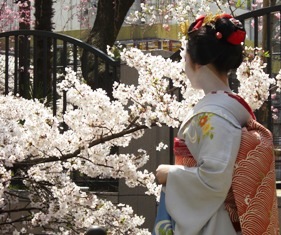JICA Volunteers in Palau
◆Alii from Palau!
Kyori Murao
JICA Volunteer
Ngaraard Elementary School
Alii~~!
It has been one year since I arrived to see the many pretty, smiling faces of the children here in Palau. Everything was new and there were very good challenges and experiences for me last year. I truly enjoy my life here in Ngaraard, which has beautiful beaches, amazing jungles and great diversity of nature. What’s more, the children are very friendly, cheerful and active and the adults are kind and giving.
Because I enjoy running, swimming and walking around the village, my skin has gotten very tan. When my colleagues or neighbors look at me, they say that my skin is getting dark like a Palauan. Actually, I am glad to hear that comment.
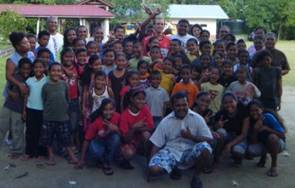
(Very Active Children)
It is a very different life style here compared to the Japanese life style. Many people in Japan are always busy worrying about the time and hurrying to get to somewhere. Of course, I can’t say which is a better way of life, but I have become totally used to the slow and quiet pace in Ngaraard and I really enjoy it.
Because there are problems in the area of primary math education in Palau, JICA volunteers have been dispatched here. JICA’s goal is the improvement of the students’ basic calculation skills and the teachers’ teaching skills. In addition to working at our school, I’m creating better teaching methods and materials and holding workshops for Palauan teachers with other JICA volunteers. These other JICA volunteers are working at different schools or at the MOE for the purpose of improving the area of primary math education in the whole of Palau.
Ngaraard Elementary school has 51 students from 1st grade to 8th grade. It is one of the smallest schools in one of the most rural areas in Palau. Students here are very friendly, sweet and active. They all happily play together without regard to grade level. I love all of the children’s smiles and any expressions including the angry ones. I really hope that they never ever lose their smiles.
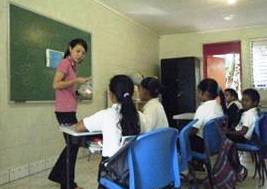
(In the lesson)
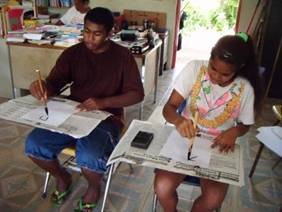
(Calligraphy)
Sometimes, however, when I teach the very active students at school, they wear me out and I fail to keep my smile. Although students are innocent, they easily forget things that I have taught them, such as simple mathematical operations. What’s worse, sometimes they don’t think or solve problems by themselves. To me, this seems to be a very significant problem. To tackle those problems, I’m trying to look for better teaching methods to improve the students’ chance of success.
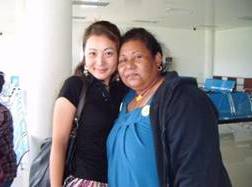
(Taking part in JICA Micronesia Math Seminar 2011 with my counterpart)
Finally, in addition to teaching math, I have been teaching Japanese and Japanese culture every week to the students at school. I’m learning so much from the Palauan people, the Palauan culture and the Palauan environment that I wanted to do something for them in return. Therefore, I decided to introduce my country because that is where I was born and grew up and because I love my country. Many students are very interested in Japanese and Japanese culture because some of their grandparents are Japanese. What’s more ,they are using many Japanese words in daily life. They have especially enjoyed my lessons on greeting phrases, numbers, how to use chopsticks, Calligraphy, Origami and so on. I plan on continuing these kinds of lessons to encourage students to understand different cultures and appreciate their own culture as well.
I am satisfied to live and work here for one more year; however, I know that time goes by very quickly. Therefore, I will spend every day doing my best to enjoy my life in Palau without wasting any time.
©Embassy of Japan in the Republic of Palau
P.O. Box 6050 Koror, Republic of Palau 96940

